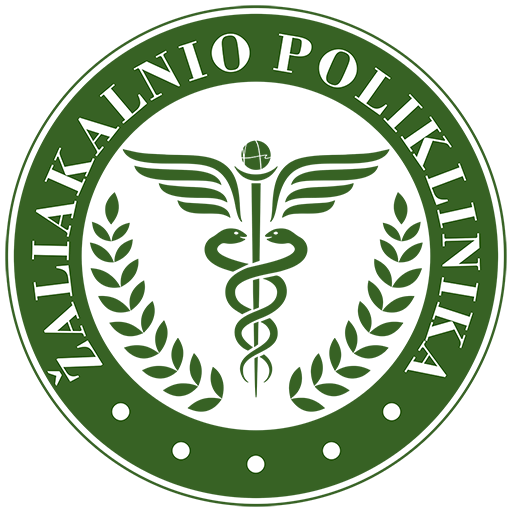What is arterial hypertension?
Arterial hypertension is a disease characterised by high blood pressure. It is very common not only in Lithuania, but also worldwide. This heart disease is diagnosed when systolic blood pressure is higher than 140 mm Hg or diastolic blood pressure is higher than 90 mm Hg. The heart does not always send a clear signal - arterial hypertension may not show any specific symptoms at first. In most cases, people feel healthy at the start of the disease, so arterial hypertension is usually diagnosed by taking a casual blood pressure reading. The development of the disease is determined by a variety of external and genetic factors:
- Age (highest risk at 55-65 years);
- Family history of cardiovascular disease;
- Smoking, drinking alcohol and other harmful habits;
- Moderate salt intake;
- Elevated cholesterol levels;
- Overweight and lack of physical activity;
- Diabetes mellitus.
Untreated arterial hypertension leads to thickening of the heart muscle, a gradual risk of heart failure, and a significant increase in the risk of myocardial infarction, stroke and kidney disease due to persistently elevated blood pressure. Hypertension causes the heart to become more and more exhausted, making it harder to work and damaging the blood vessels, which can eventually lead to organ failure. The organs most often affected are those with the most extensive vascular network - the brain, eyes and kidneys.
How to fight?
If you have been diagnosed with arterial hypertension, it is important to realise that it is a chronic disease that you may have to fight for the rest of your life. Even if you feel better, you must continue to take the medication prescribed by your doctor and follow the recommendations for people with the disease, because treatment is only effective if you try to eliminate the risk factors that cause the disease. The European Society of Cardiology identifies the following basic rules that should guide the daily life of all people with arterial hypertension:
- No alcohol or smoking, as these harmful habits increase pulse rate and arterial blood pressure;
- Eliminate salt, or at least reduce your intake to 5 - 6 g/day;
- Plan your diet carefully: avoid high-fat foods, spicy condiments, refined sugars, sugary drinks, and drink enough fluids and eat as many fruit and vegetables as possible;
If you are overweight, consult a specialist about how to reduce your body weight, as excess energy from fat contributes to the development of arterial hypertension;
Cardiovascular diseases are extremely insidious and claim an incredible number of lives every year worldwide. One of the most common diseases associated with abnormal heart function is arterial hypertension. Although it is still considered a disease of the elderly, doctors are noticing that arterial hypertension is catching up with younger and younger people: even in childhood or adolescence, high blood pressure can be detected. People often lack information about the dangers of hypertension, so changes in blood pressure are often not treated as a serious problem.
What is arterial hypertension?
Arterial hypertension is a disease characterised by high blood pressure. It is very common not only in Lithuania, but also worldwide. This heart disease is diagnosed when systolic blood pressure is higher than 140 mm Hg or diastolic blood pressure is higher than 90 mm Hg. The heart does not always send a clear signal - arterial hypertension may not show any specific symptoms at first. In most cases, people feel healthy at the start of the disease, so arterial hypertension is usually diagnosed by taking a casual blood pressure reading. The development of the disease is determined by a variety of external and genetic factors:
- Age (highest risk at 55-65 years);
- Family history of cardiovascular disease;
- Smoking, drinking alcohol and other harmful habits;
- Moderate salt intake;
- Elevated cholesterol levels;
- Overweight and lack of physical activity;
- Diabetes mellitus.
Untreated arterial hypertension leads to thickening of the heart muscle, a gradual risk of heart failure, and a significant increase in the risk of myocardial infarction, stroke and kidney disease due to persistently elevated blood pressure. Hypertension causes the heart to become more and more exhausted, making it harder to work and damaging the blood vessels, which can eventually lead to organ failure. The organs most often affected are those with the most extensive vascular network - the brain, eyes and kidneys.
How to fight?
If you have been diagnosed with arterial hypertension, it is important to realise that it is a chronic disease that you may have to fight for the rest of your life. Even if you feel better, you must continue to take the medication prescribed by your doctor and follow the recommendations for people with the disease, because treatment is only effective if you try to eliminate the risk factors that cause the disease. The European Society of Cardiology identifies the following basic rules that should guide the daily life of all people with arterial hypertension:
- No alcohol or smoking, as these harmful habits increase pulse rate and arterial blood pressure;
- Eliminate salt, or at least reduce your intake to 5 - 6 g/day;
- Plan your diet carefully: avoid high-fat foods, spicy condiments, refined sugars, sugary drinks, and drink enough fluids and eat as many fruit and vegetables as possible;
- If you are overweight, consult a specialist about how to reduce your body weight, as excess energy from fat contributes to the development of arterial hypertension;
- Spend at least half an hour a day on physical activity. People today are moving less and less, both at work and in their leisure time, so it is important to spend as much time as possible on sport, as it helps to reduce the risk of cardiovascular disease;
- Try to reduce stress levels, get enough sleep and spend as much time as possible outdoors.
According to the doctors, every patient with hypertension should make lifestyle changes that can help control the disease - slowing down its progression and avoiding painful consequences. Fight for your heart health - even if you have high blood pressure, personal effort and regular check-ups will help you to feel better and live a quality life.
- Spend at least half an hour a day on physical activity. People today are moving less and less, both at work and in their leisure time, so it is important to spend as much time as possible on sport, as it helps to reduce the risk of cardiovascular disease;
- Try to reduce stress levels, get enough sleep and spend as much time as possible outdoors.




